News & Media
Unisa champions inclusivity with landmark language policy
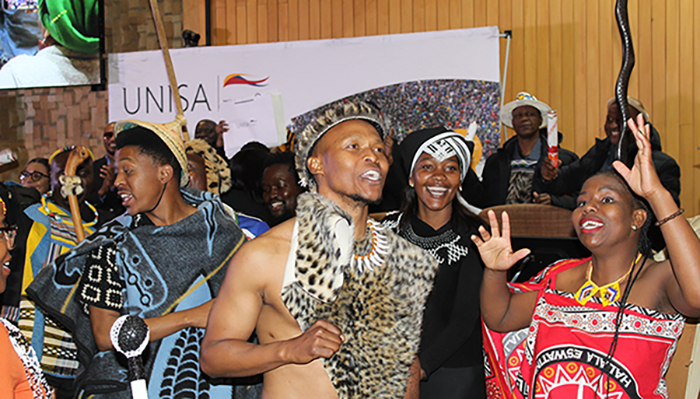
United in diversity: Unisans celebrating the signing of the Institutional Multilingual Language Policy
On 25 July 2025, Unisa’s Directorate for Language Services (DLS) launched the university’s Institutional Multilingual Language Policy at an event themed Multilingual Language Policy implementation: The nerve-centre of the Africanisation agenda. This landmark policy will see all of South Africa’s 13 official languages, including sign language, accommodated in the university’s curricula.
The policy is aimed at fostering inclusivity and accessibility for Unisa students, staff and key stakeholders from various linguistic backgrounds. It also aims to promote linguistic diversity and preserve cultural heritage by creating a learning environment that enables students to engage with academic content in the languages of their choice.
In his keynote address, Interim Associate Vice-President of Indigenous Research and Associate Professor in the School of Social Work at the Memorial University of Newfoundland in Canada, Paul Adjei, stressed that language is important not only for the purpose of communication but also to forge, form and maintain bonds in society and to understand the world around us. He added: "Your language is your distinct DNA that connects to your ancestors, history and social identity. In fact, your language of birth, also known as mother tongue, is the single most important evidence that your ancestors exist, and that you are connected to a distinct group."
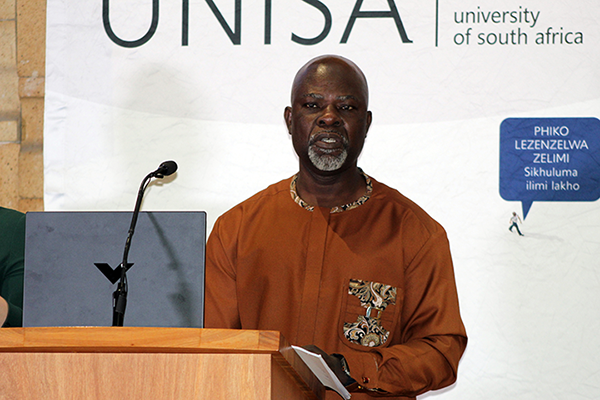
Keynote speaker Prof Paul Adjei, Interim Associate Vice-President of Indigenous Research and Associate Professor in the School of Social Work at the Memorial University of Newfoundland in Canada
Where colonial languages thrive, indigenous languages struggle to survive
Adjei said that colonial languages are the new Trojan horse, adding: "Once they sneak into indigenous communities, they define and dictate the nature of social relations in the indigenous communities".
He stated that African languages are epistemic gifts to Africanising the education system, which, he said, requires a certain level of responsibility. He added: "We need to shift away from overemphasis on Eurocentric discourses in education systems in Africa and demand that the knowledges, philosophies and worldviews of African indigenous communities be included in the curriculum and pedagogical practices".
Continuing, Adjei emphasise that indigenous African languages are knowledge associated with a long-term attachment and nurtured relationship to a place that allows people to reference their own established cultural knowledge as a way of resisting the imposition of external ideas, values and worldviews.
A call to action
Concluding, Adjei urged that the education system in Africa needs to create a new "African multi-varsity" where, he said, indigenous African languages and knowledge systems would work together with other knowledge systems. This would enable African elders to teach African proverbs, fables, folktales, myths, mythologies and storytelling through oral traditions in their indigenous languages. "Such an environment is a radical space, where African learners are in tune with their ancestral languages and cultural metaphors," he said in conclusion.
Official signing
Dr Rakwena Monareng (Director: DLS), assisted by Lillian Maja (Language Practitioner: DLS), signed the Institutional Multilingual Language Policy before a cheering audience. This was a landmark achievement for the university and the directorate, underscoring the significance of linguistic diversity and inclusion.
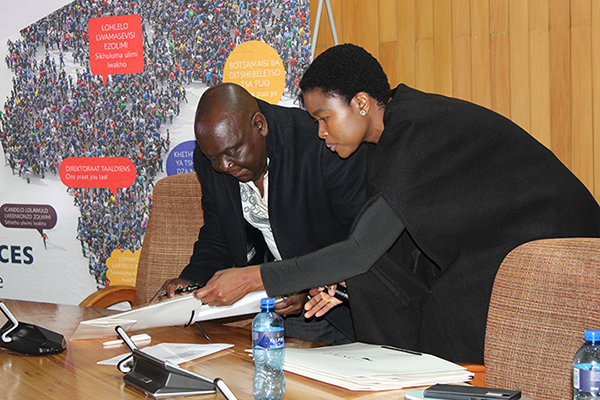
Dr Rakwena Monareng, Director: DLS, assisted by Lillian Maja, Language Practitioner: DLS, during the signing of the policy
The launch of the Institutional Multilingual Language Policy highlighted the advances in ensuring the implementation of multilingualism in the university’s colleges and support service departments. In addition, it will feature the perspectives of students regarding their experiences with learning materials in their preferred languages, including challenges, and suggestions for improvement.
* By Godfrey Madibane, Acting Journalist, Department of Institutional Advancement, with additional reporting by the Unisa Media Office
Publish date: 2025-07-29 00:00:00.0


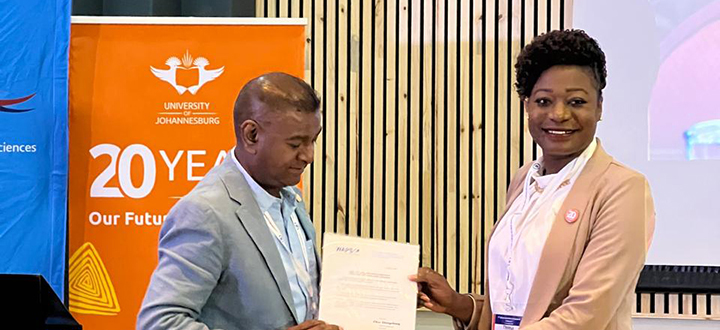 Unisa co-hosts major operations management conference
Unisa co-hosts major operations management conference
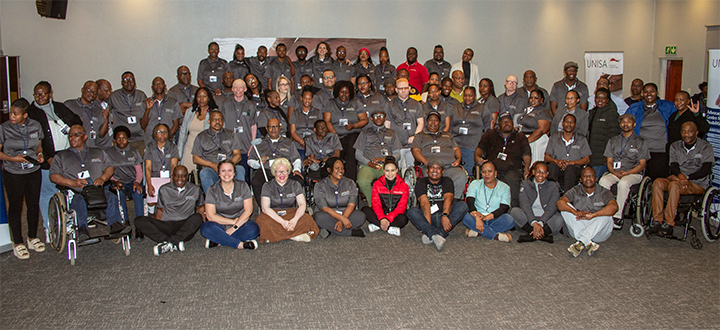 Strengthening disability-inclusive practices across higher education
Strengthening disability-inclusive practices across higher education
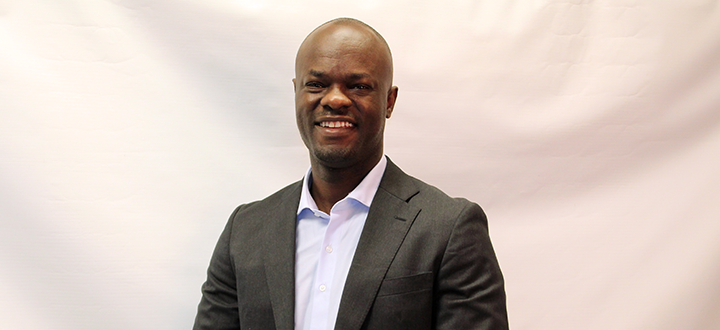 Unisa astrophysicist receives prestigious Royal Society award
Unisa astrophysicist receives prestigious Royal Society award
 Unisa's eminent women academics recognised for science excellence
Unisa's eminent women academics recognised for science excellence
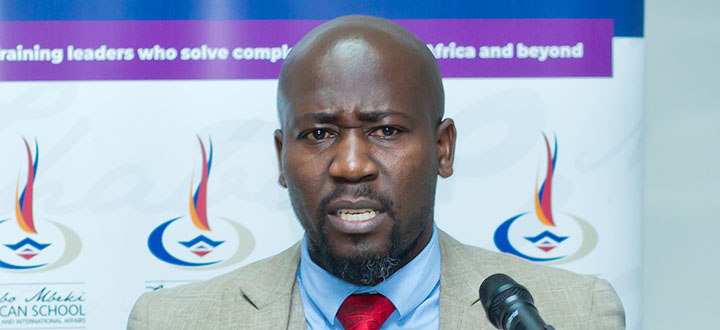 Illicit trade in Africa’s natural resources: Experts sound the alarm at Unisa seminar
Illicit trade in Africa’s natural resources: Experts sound the alarm at Unisa seminar